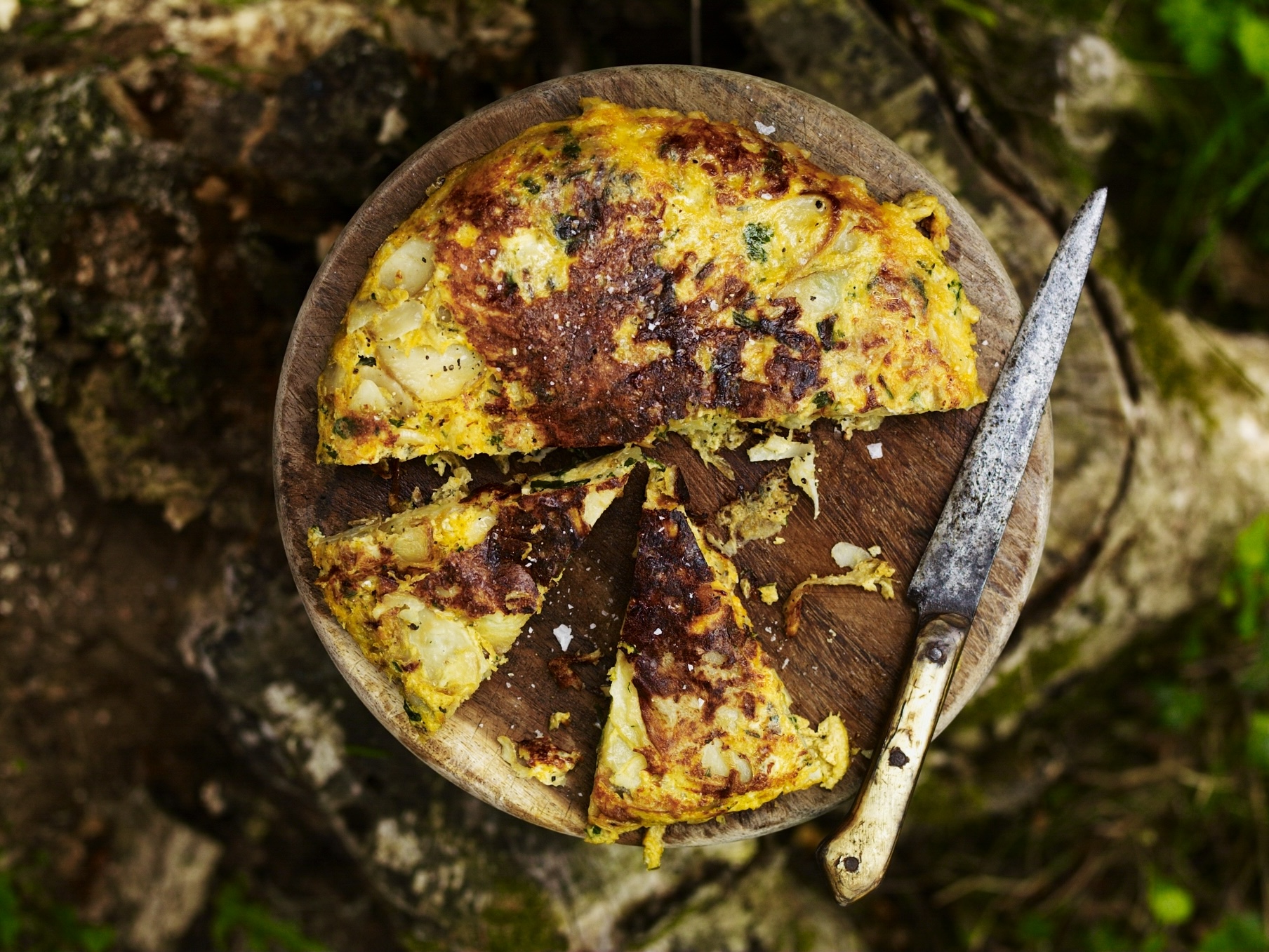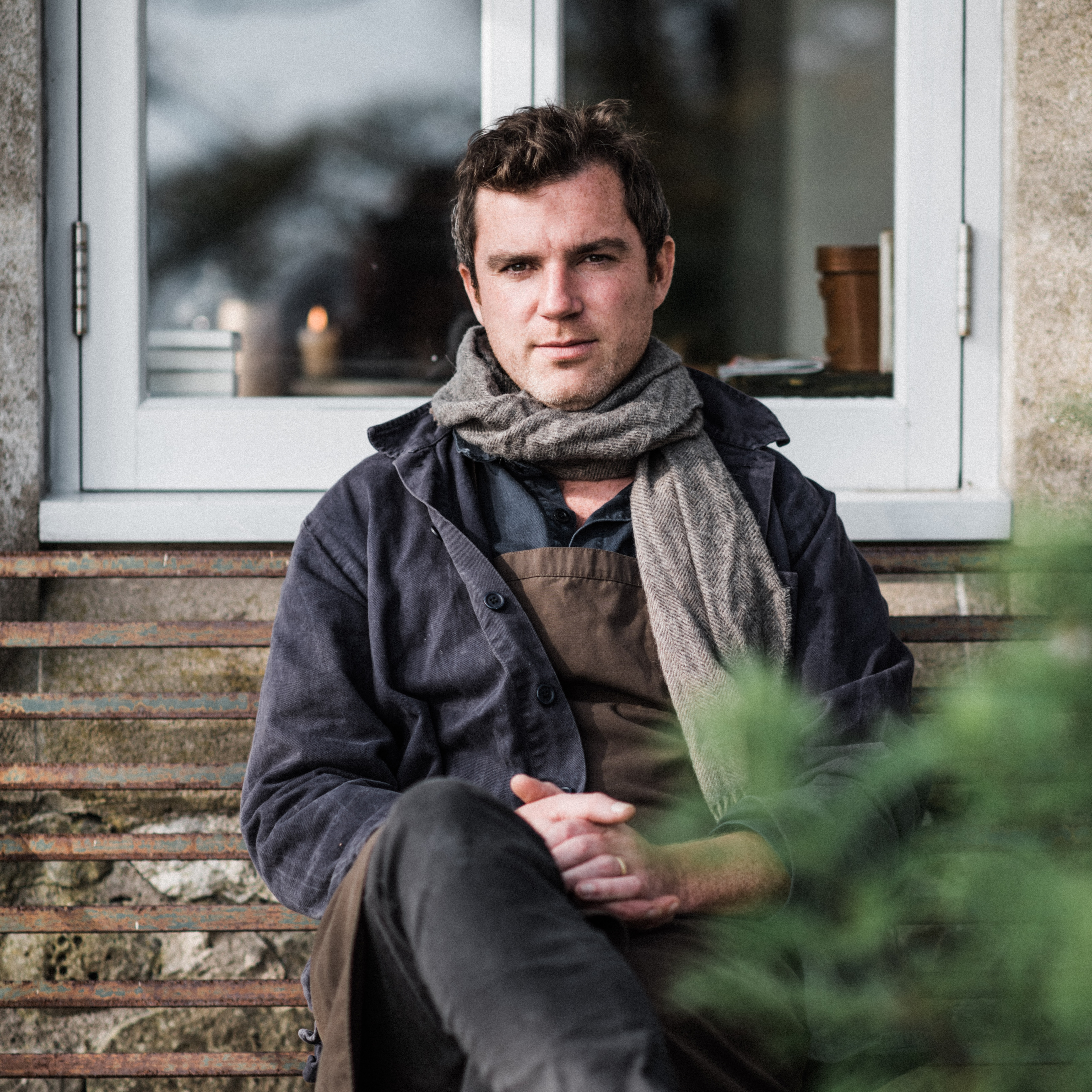Gill Meller's recipe for a seasonal new potato omelette, with smoked garlic, onions and Cheddar cheese


Exquisite houses, the beauty of Nature, and how to get the most from your life, straight to your inbox.
You are now subscribed
Your newsletter sign-up was successful
There are a couple of stages that help this omelette stand out. The first is the cooking of the potatoes. Give them enough time in the pan to collapse in the hot olive oil before you spoon them into the eggs, which is the second stage. Stir in the soft potatoes and let them rest there, to soak up the eggs. You shouldn’t be able to tell where the egg begins and the potato ends. The two should — almost — become one. If you can’t find smoked garlic, use normal garlic cloves instead.
Ingredients
- 6 eggs
- 300ml extra-virgin olive oil
- 1 onion, thinly sliced
- 500g new potatoes, cut into 2-3cm slices
- 4 smoked garlic cloves, thinly sliced
- 1 tsp thyme leaves
- 1 tbsp chopped flat-leaf parsley
- 75g Cheddar cheese, grated
- Sea salt and freshly ground black pepper
Method
Crack the eggs into a mixing bowl, but don’t whisk them up. Set aside.
Place a large frying pan over a low–medium heat and add the olive oil. When it’s warm, add the onion and cook, stirring regularly, for 6–8 minutes, until softened but not browned. Stir in the potato slices and cook, turning occasionally, for 15–20 minutes, or until the potatoes are just beginning to break up. Add the smoked garlic, thyme and parsley and cook for a further 1 minute or so, then use a slotted spoon to lift the potato and onion mixture out of the pan into the bowl with the eggs. Remove the pan from the heat, but reserve the cooking oil.
Add the cheese and plenty of salt and pepper and stir well to break up the eggs. Leave the mixture to sit for 15–20 minutes.
To cook, heat a medium-sized non-stick pan over a medium heat. Add
a dash of the reserved cooking oil and wipe it around the pan with some kitchen paper to coat (you can jar any remaining cooking oil for another time). Spoon in the potato and egg mixture and give the pan a little shake to even everything out. Cook for 3 minutes, then turn up the heat and cook for a further 1 minute or so, until the omelette is beginning to firm up on the underside.
Exquisite houses, the beauty of Nature, and how to get the most from your life, straight to your inbox.
Place a flat plate over the top of the pan and carefully flip the pan, inverting the omelette onto the plate. Return the pan to the heat and gently slide the omelette back into the pan and cook for a further 3 minutes on a medium heat and 1 minute or so on a high heat, until cooked through and golden.
Slide the omelette onto a plate and allow it to rest for at least 5 minutes before serving with a dressed green salad.
This recipe originally appeared in 'Root, Stem, Leaf, Flower — how to cook with vegetables and other plants'. You can follow Gill Meller on Instagram, here.
Gill Meller is a chef, award-winning food writer, teacher and advocate for real cooking. Based in Lyme Regis, Dorset, he has written extensively about the joys of outdoor cookery and how making a simple fire and 'cooking something good to eat over it' can help us connect to a more natural, mindful way of life. Gill appears frequently on Channel 4’s ‘River Cottage’ and has worked closely with the River Cottage for more than 20 years, regularly teaching at Park Farm (River Cottage HQ). His work is regularly published in The Guardian and the Observer, The Telegraph, Waitrose Food and Delicious Magazine. He has also appeared on BBC Radio 4’s The Food Programme. Published by Quadrille, Gill’s first book, Gather, won the Fortnum & Mason award for Best Debut Food Book in 2017 and was shortlisted for the Andre Simon Award and Guild of Food Writers Award the same year. Time: a year and a day in the kitchen was published in September 2018 and was nominated for both Guild of Food Writers’ General Cookbook Award and Food & Travel magazine’s Cookbook of the Year Award. Root, Stem, Leaf, Flower - how to cook with vegetables and other plants was published in 2020 and was nominated for the Guild of Food Writers’ General Cookbook Award. His latest cookbook Outside - Recipes for a wilder way of eating is out now.
